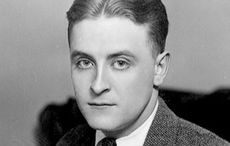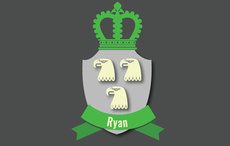"Backlash" politics began 50 years ago, with Robert Kennedy and the death of Martin Luther King Jr... We are still dealing with it today.
Fifty years ago, on the day before St. Patrick’s Day, Robert F. Kennedy announced that he was running for the presidency of the United States.
“I do not run for the presidency merely to oppose any man, but to propose new policies,” said Kennedy, who four years earlier had been elected U.S. senator from New York.
Kennedy made his presidential announcement in the same room in the Senate building where his brother, Jack, had announced his own run for the White House in 1960.
“I run because I am convinced that this country is on a perilous course and because I have such strong feelings about what must be done, and I feel that I'm obliged to do all I can.”
In less than a month, on April 4, 1968, Bobby Kennedy made another speech, this one in Indianapolis, revealing to a shocked crowd that Martin Luther King had been assassinated in Memphis. For a brief period it seemed Bobby was the only one who could bring a deeply divided America together.
“He connected black struggle with the struggle of Irish Americans,” The New Republic noted recently, “suggesting that if America could elect an Irish Catholic president, it would elect a black president within 40 years.”
By June, of course, Bobby himself would be dead.
And so began one of the most tumultuous eras in American history, one which we mark the 50th anniversary of this year. Anytime we feel the current political and social climate is positively insane, we would be wise to recall the events of 1968.
Assassinations, riots, war, protests.
In American Pastoral, his beautiful, chaotic novel about how these events tore apart the seemingly perfect marriage of an Irish American beauty queen and a Jewish American striver, Philip Roth refers to 1968 as the high-water mark of “the indigenous America berserk.”
And Irish Americans -- from Bobby Kennedy to blue collar workers - -were central players.
On the national stage, two Irish Americans -- Kennedy and Eugene McCarthy -- began the year as political outsiders, challenging the Vietnam War policy of President Lyndon Johnson, who would eventually shock the world by not even running for re-election.
But out in the working class ethnic neighborhoods of New York and Boston and Chicago an anger was bubbling.
Consider a small moment from Chris Mathews' recent book Bobby Kennedy: A Raging Spirit.
Kennedy was campaigning in Manhattan. “From above," Mathews writes, “a construction worker yelled down at him from the girder of a new building: ‘Hey, Bobby, don’t forget about the Irish and the Italians.’”
There was a feeling among many Irish Americans that they and their immigrant ancestors had played by the rules, had bought into the whole idea of the American Dream. And yet, it seemed the press and politicians were only paying attention to the rule-breakers out there, the hippies and the protesters.
Even criminals and rioters, it seemed, were being treated sympathetically, because some argued they had been driven to a life of crime by poverty and other factors.
This came to be known as “backlash” politics. It was ugly and, in some ways, it convinced generations of Irish Americans to forget how their own ancestors had been vilified as violent troublemakers.
Just five months after Bobby Kennedy’s assassination, it was Richard Nixon who skillfully figured out how to tap into this anger, and move into the White House.
The real shocking outsider was rabble-rouser George Wallace, who won big not only in the former confederate South, but did surprisingly well in the ethnic North.
“Urban Catholic precincts also gave Wallace fair support in northern New Jersey, Philadelphia, New York City, Connecticut and Boston,” Kevin Phillips noted in his book The Emerging Republican Majority.
It began 50 years ago. We are still dealing with it today.
(Tom Deignan is a contributing writer for the new book Nine Irish Lives: The Fighters, Thinkers, and Artists Who Helped Build America (Algonquin). Contact “Sidewalks” at tdeignan.blogspot.com.)




Comments